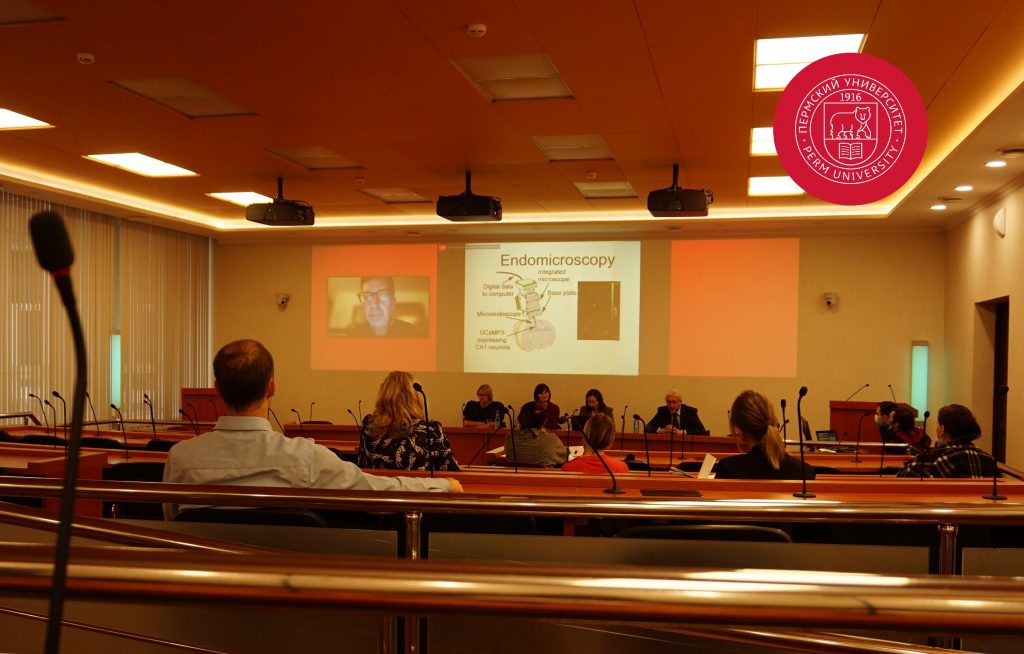Stanford Scholar opens PSU International Forum, Raises Discussion
How does our brain look, when making social-based, moral decisions? Can we speak of morality if we mention animals, let’s say, rats? May we introduce the holy commandments into such tests, and why?
Today, the International Forum “Science and Global Challenges of the 21st Century” started at Perm State University, uniting PSU scholars with those national and international ones, aiming to incorporate cross-discipline research, smart technologies and innovations into pragmatic, problem-applied decisions.
At the start of the Forum, the opening report “Manipulation of Brain States” by Dr. Luis de Lecea, Stanford University School of Medicine (Stanford, USA) was presented to on- and offline audience.
Concentrating on a problem of brain cells manipulation within the optogenetics’ approach, Dr. Luis de Lecea drew on the example of a rat leaving a ‘safe’ dark chamber into ‘unsafe’ light. Along the use of a neuron signal, the rat learned to ‘calm down’ its neighbor locked in a shadow zone, causing less stress for both and heading to a more balanced co-existence, establishing ‘moral’ principles of behavior.

The test raised discussion among the audience. First, a definition of morals and its division from a mere instinct was requested. Then, the question of a goal/hypothesis of such experiment was asked. Finally, Dr. Oleg Pensky, Professor of the IT Department, PSU proposed assimilation of commandments, shared by believers and regarded as true morals, to be introduced into the experiment.
Technically, optogenetics is known as a biological tool that involves light to control neurons that have been genetically modified to express light-sensitive ion channels in living tissue and, remarkably, within freely-moving animals. The appearance of additional philosophical notions, such as understanding, compassion, or morals brings a new dimension into a strictly ‘natural’ academic approach.
Optogenetics had been previously announced by academic research journals as a breakthrough in science. On the clinical side, optogenetics-driven research led to insights into Parkinson’s disease and other neurological and psychiatric disorders, including autism, Schizophrenia, drug abuse, anxiety, and depression, and more – like experimental treatment for blindness.
